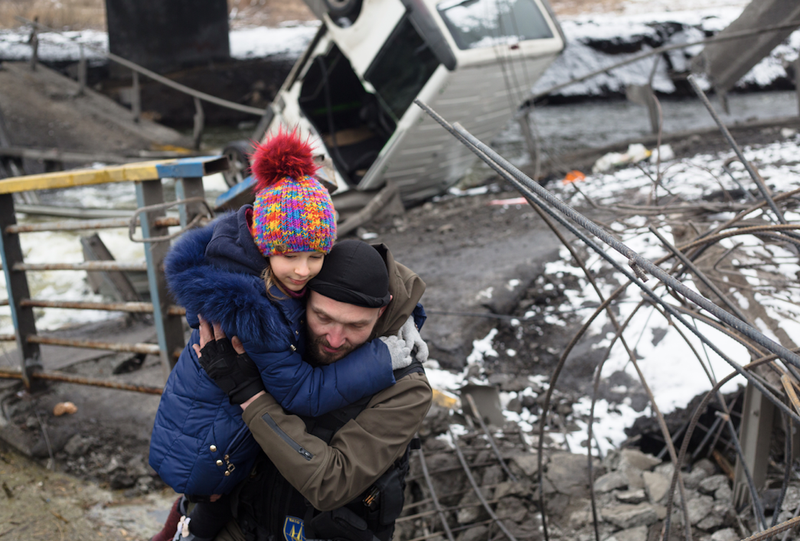
(WBBM NEWSRADIO) — What is war about? Why are people fighting? Is it coming to the United States?
For some kids, the sights and sounds of war across Ukraine are prompting questions, and they’re turning to their parents for answers. So, what can adults say to children?
Depends on their age, advises Dr. Munther Barakat, director of behavioral health therapy at Advocate Aurora Health.
“Younger children typically will ask questions because of some fear or thought about their security or their safety being in danger,” he said. “The ultimate goal for kids that age is to really ensure that they are safe, and really support them and get them to a place where they feel safe again.”
Barakat noted parents should follow their childrens’ lead. For example, if a parent is concerned about the conflict in Ukraine but their young child isn’t asking about it or they don’t seem to be affected by it, it’s probably a good idea not to bring it up.
As kids get older, they may have more specific questions about things they read or see.
In that case, Barakat said, parents should help weigh in on the validity of that information.
“They're trying to figure out what information is right or what information is wrong. Meanwhile, high schoolers, they're trying to develop their critical thinking skills, so you can really watch things with them and kind of process things with them at that age.”
The biggest takeaway for parents is that you don’t need to have all the answers.
“What your kids want to know is if you are able to live with some level of uncertainty about things or lack of knowledge about things,” Dr. Barakat said. “There's a good opportunity to say, ‘All right, if we want to learn more about what's going on, let's look into it together.’”
LISTEN on the Audacy App
Sign Up and Follow Audacy
Facebook | Twitter | Instagram